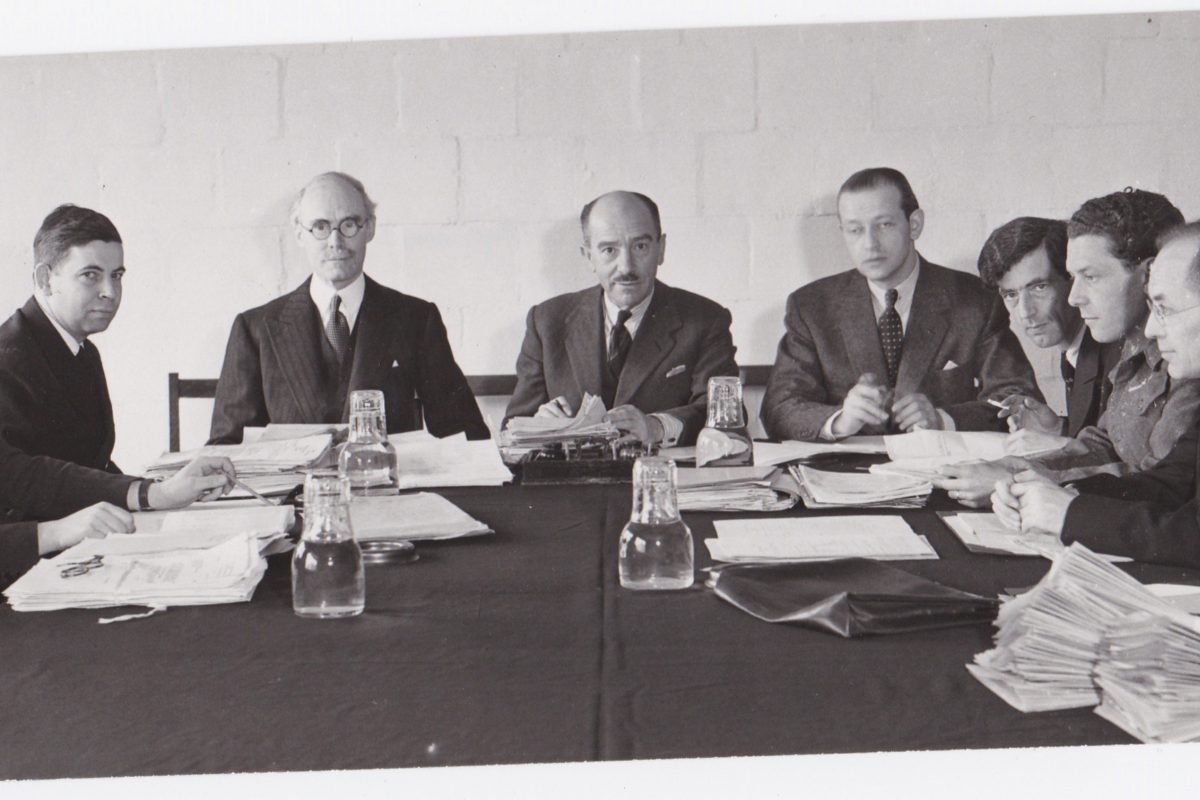On the morning of Sunday July 29th 1945, Robert Jackson, recently named as Chief Prosecutor of the International Military Tribunal to be established in Nuremberg, was driven from his hotel in Mayfair to Cambridge, about 60 miles north-east of London. In the company of his son Bill, two secretaries and a staff lawyer, he spent the afternoon with Hersch Lauterpacht, in the garden of the academic’s house, on Cranmer Road. The two men talked. At the end of the day, Jackson returned to London with a suggestion put him by the former Lemberger.
A few days later, on August 8th, the Charter of the Nuremberg Tribunal was adopted. Its Article 6 set out the list of crimes over which the Tribunal would be able to exercise jurisdiction. Each crime had a title, inserted to assist in public understanding and, in that way, enhance legitimacy. Paragraph (c) was titled ‘Crimes against Humanity’, which included “murder, extermination, enslavement, deportation, and other inhumane acts committed against any civilian population”.
This was the first time that those three words were used in a text that was binding as a matter of international law. How they came to be chosen, and the precise circumstances which preceded that moment in a garden and allowed the development to occur, is the subject of this original, balanced and thoughtful work. Kerstin von Lingen makes clear that neither of the two men who sat together in a Cambridge garden can properly be characterised as ‘inventors’ (unlike Rafael Lemkin, who, a few months earlier, had in a real sense invented the word ‘genocide’). Lauterpacht and Jackson were conduits, offering a means by which a set of words came to be identified, assembled and then vested with a meaning and authority under international law.
Von Lingen’s work places a sharp emphasis on the intellectual initiative and drive of various individuals, a source of construction that is often ignored in addressing the origins of rules, and their subsequent application. She traces a path that originates in the middle of the 19th century, traverses conferences held in The Hague, confronts the events of 1915 that led to the killing of large numbers of Armenians, and culminates in various initiatives in the course of the Second World War, including conferences, meetings and activities carried out under the auspices of the United Nations War Crimes Commission. At each stage, key individuals may have played a decisive role, men like Bohuslav Ecer and Egon Schwelb (the absence of women is a striking feature of such narratives, and one wonders about the role of spouses or other partners). For each, the personal story and circumstance will have played a “forming factor”, in their intellectual and emotional development, whether by way of “historical context” or as a “personal experience with violence”.
On von Lingen’s persuasive account, the choice of the word “humanity”, and the emphasis on the protection of the individual, offered a “bridge between the epistemic communities of the 1870s and the exiled lawyers of the 1940s, and stressed the idea of a supranational community … as the guardian of justice”. This is a community – a global group – that comprises a membership defined not by features of nationality, ethnicity, race or religion, but as the totality of all human beings, and perhaps also more, including the space, features and values of that group’s shared existence. In this way, the concept of “crimes against humanity” emphasises more than the concept of “genocide” – the totality of all individuals – and less – each individual human being matters, because they are a human being.
Nevertheless, it remains the fact that the concept of “crimes against humanity” has not offered the same public resonance as that of “genocide”. Perhaps this is because the formulation offers a more technical or legalistic concept, and fails in popular consciousness to evoke the sense of horror and scale offered by Lemkin’s word. Or it may be that the act of atrocity perpetrated against a narrowly defined group (because it is a group) is more evocative than an act perpetrated against many persons defined by their identity merely as a human being. Or it could be, that unlike the concept of “genocide”, thus far at least, there is for “crimes against humanity” no equivalent to the 1948 Convention which was, after all, the first modern human rights treaty of its kind.
This will be a matter for future historians. After 1945, the concept of “crimes against humanity” went into partial abeyance. It re-emerged in the early 1990s, in the context of the horrors of the former Yugoslavia and Rwanda. There too, and in the negotiations of the Rome Statute of the International Criminal Court and the elaboration by the UN International Law Commission of a draft Convention on the Prevention and Punishment of Crimes against Humanity, individuals will have played – or will play – a decisive role in the path that is yet to be taken.

Philippe Sands is Professor of Law at the University College London and author of East West Street: On the Origins of Genocide and Crimes against Humanity (Weidenfeld & Nicolson, 2016).
Picture (c) Antonio Olmos
